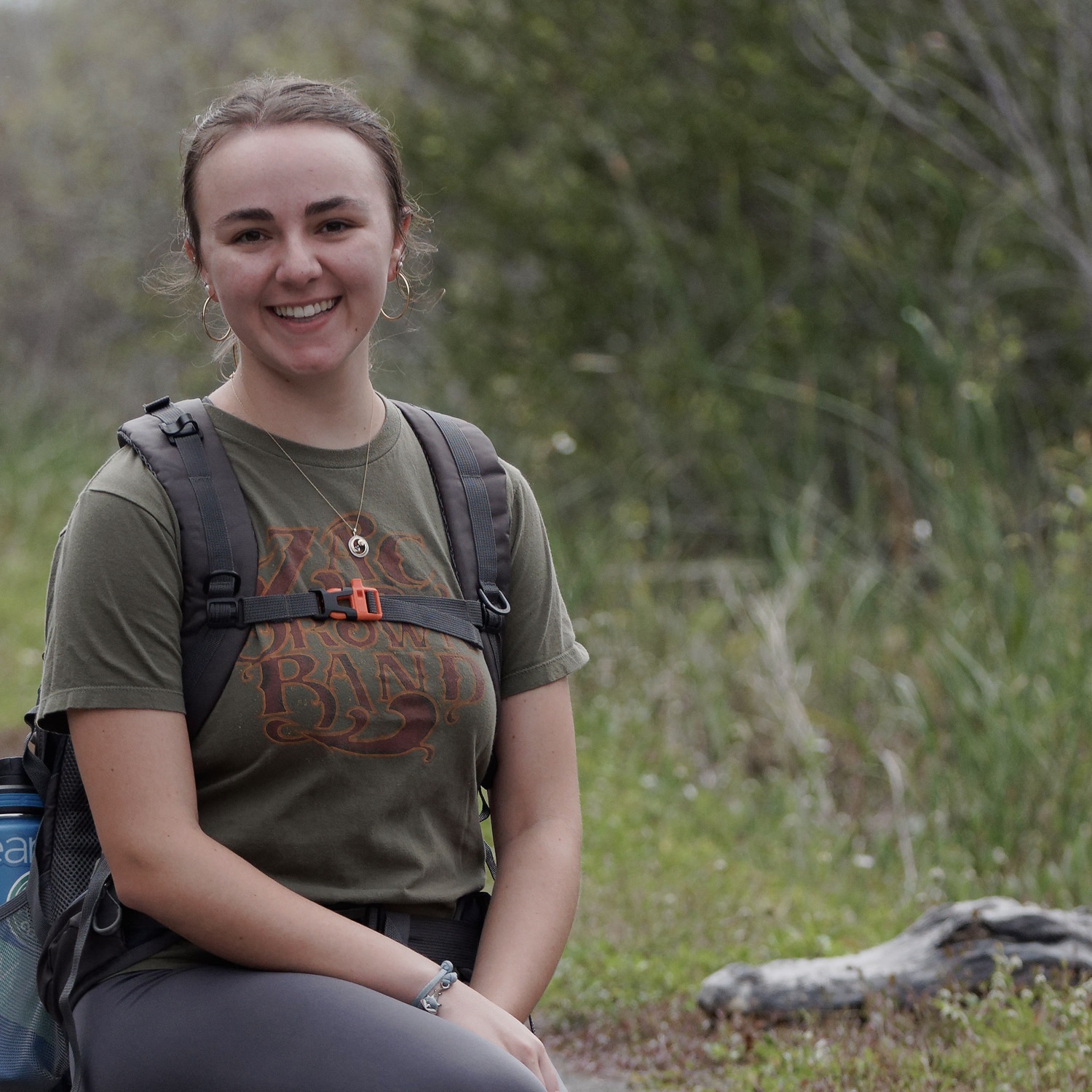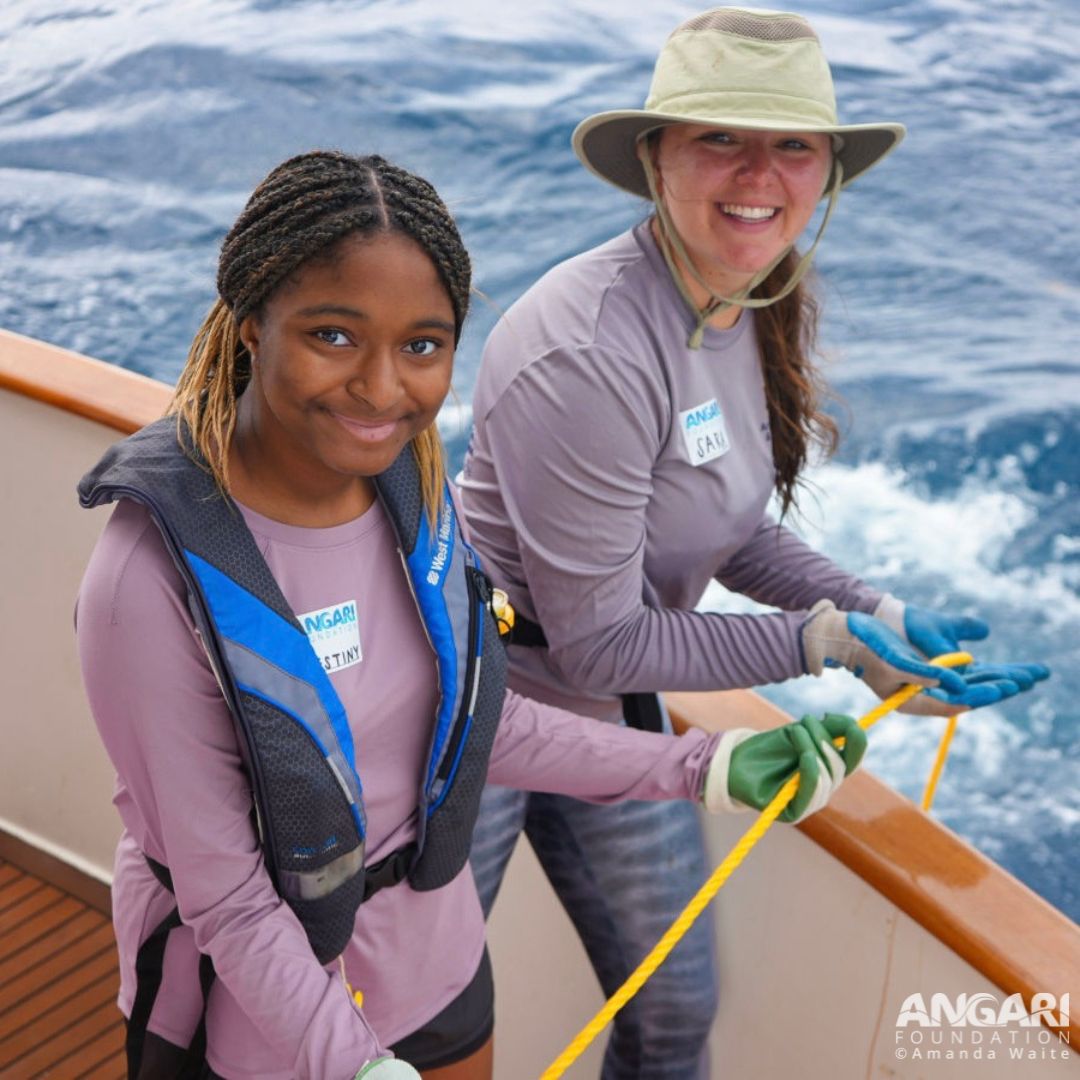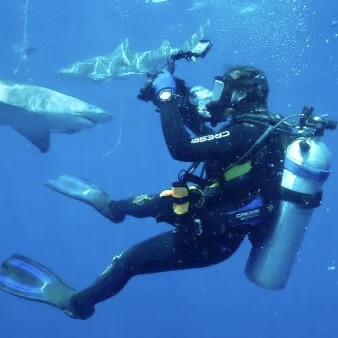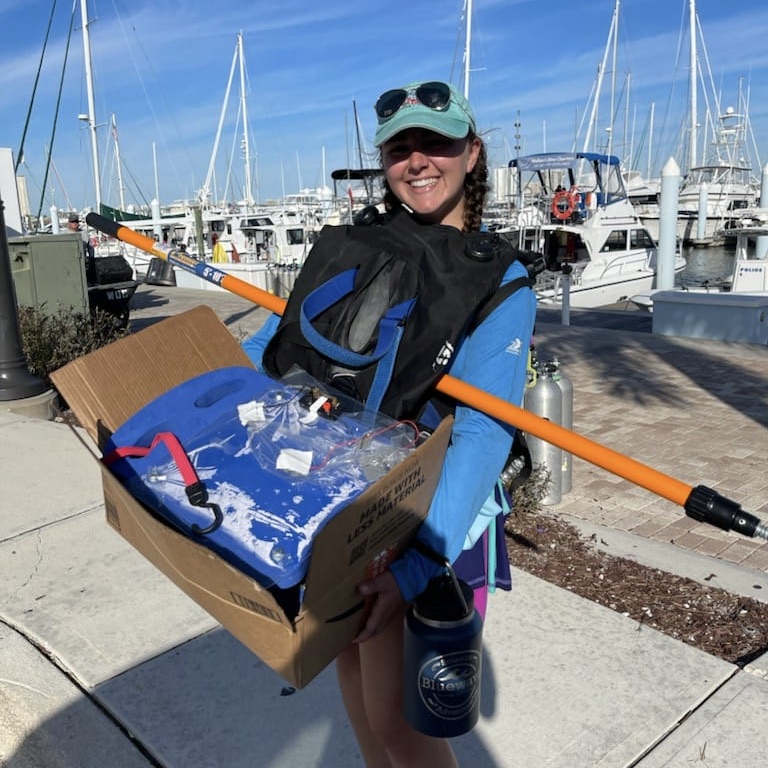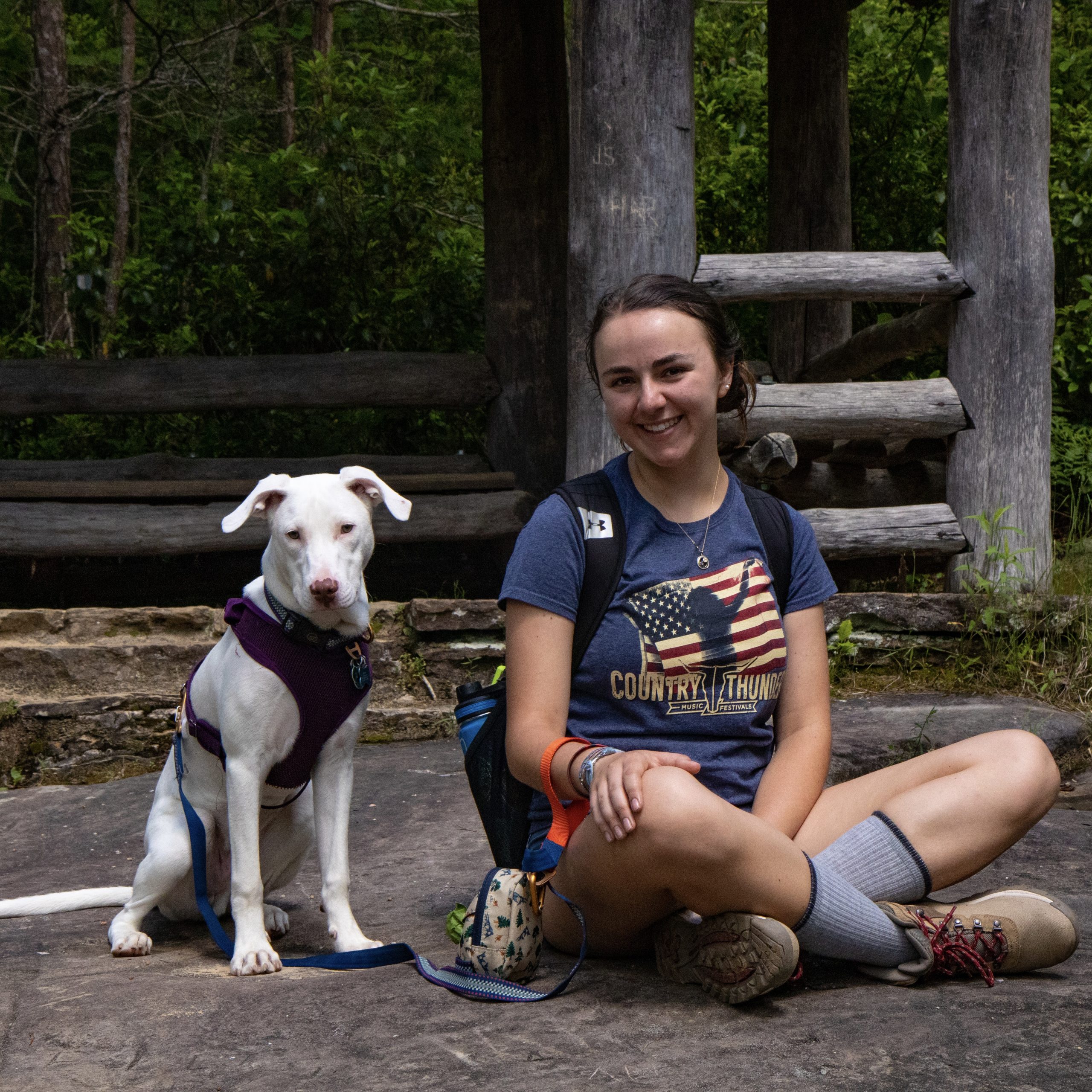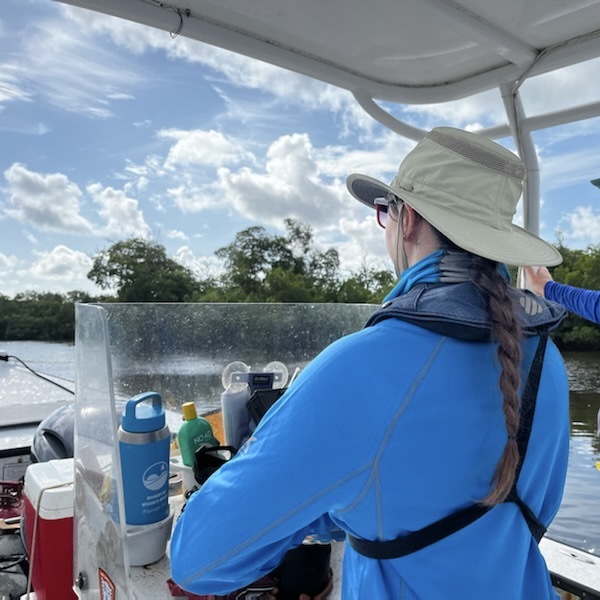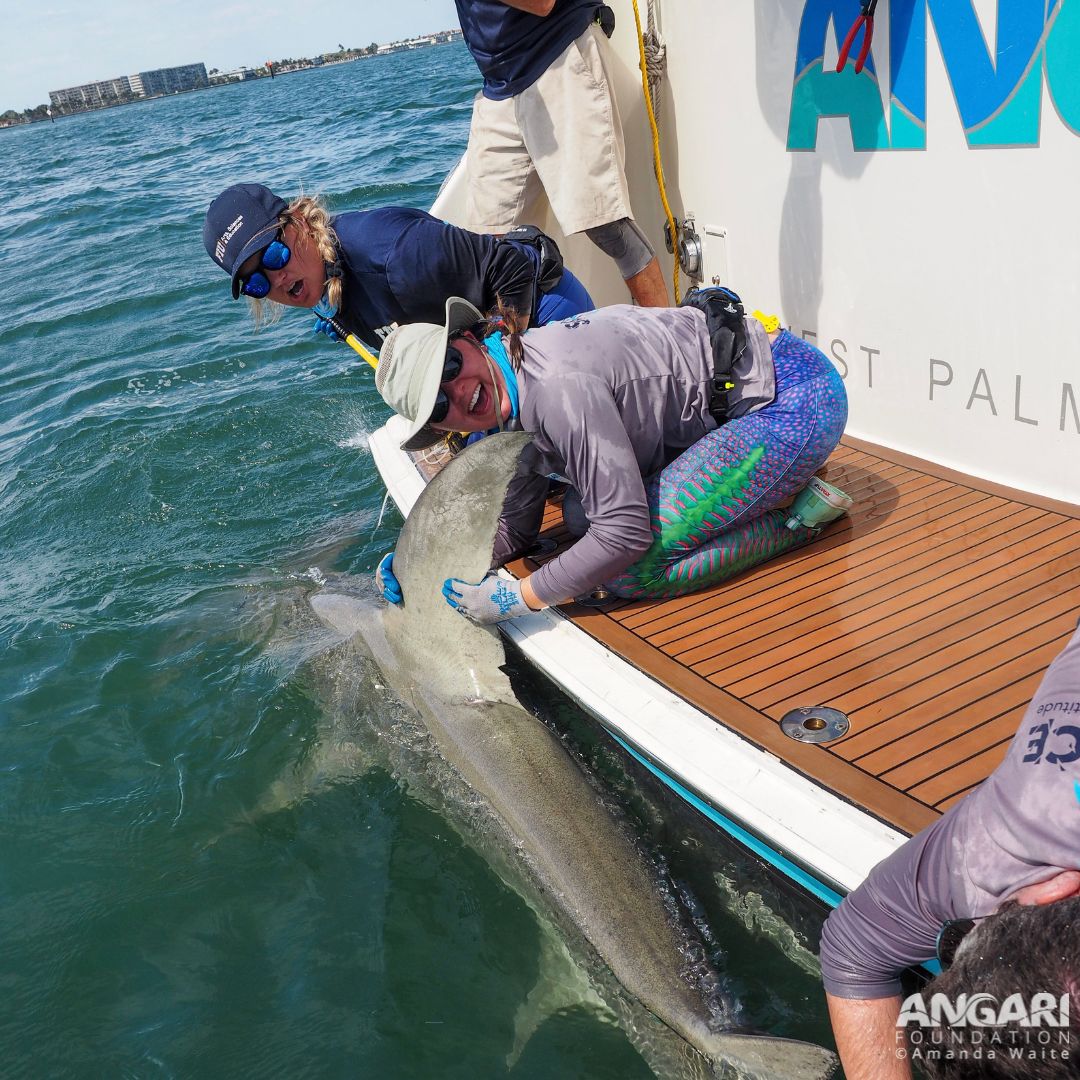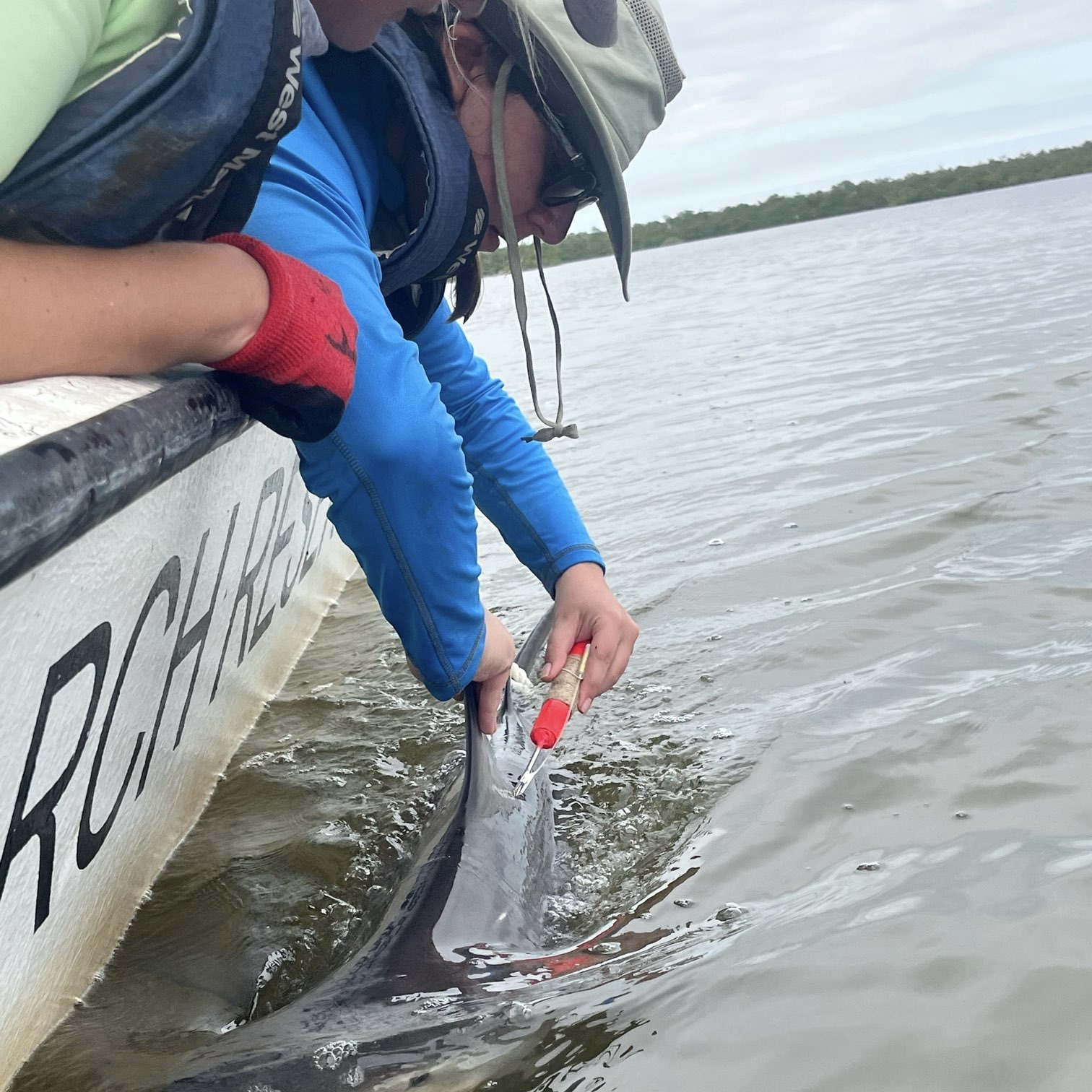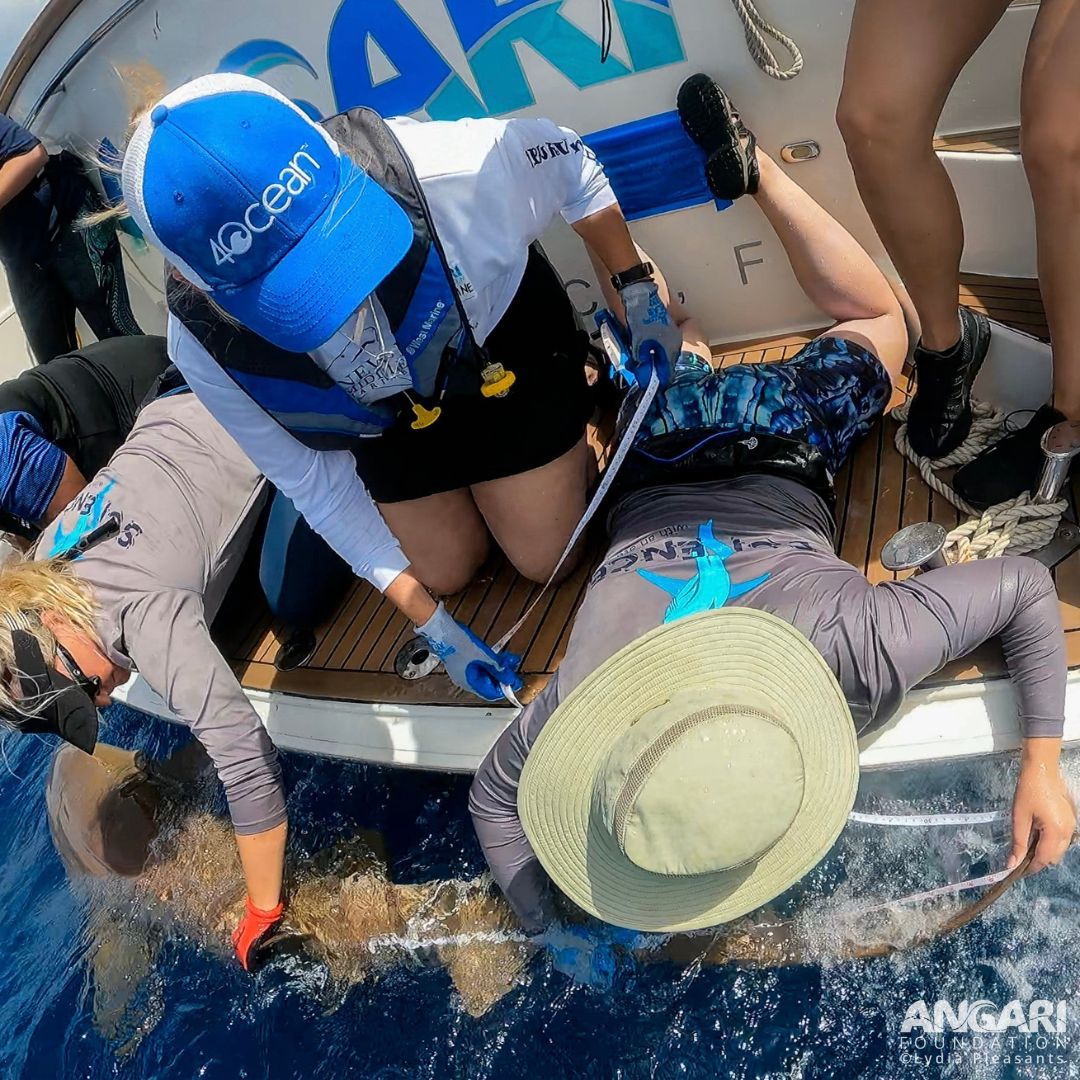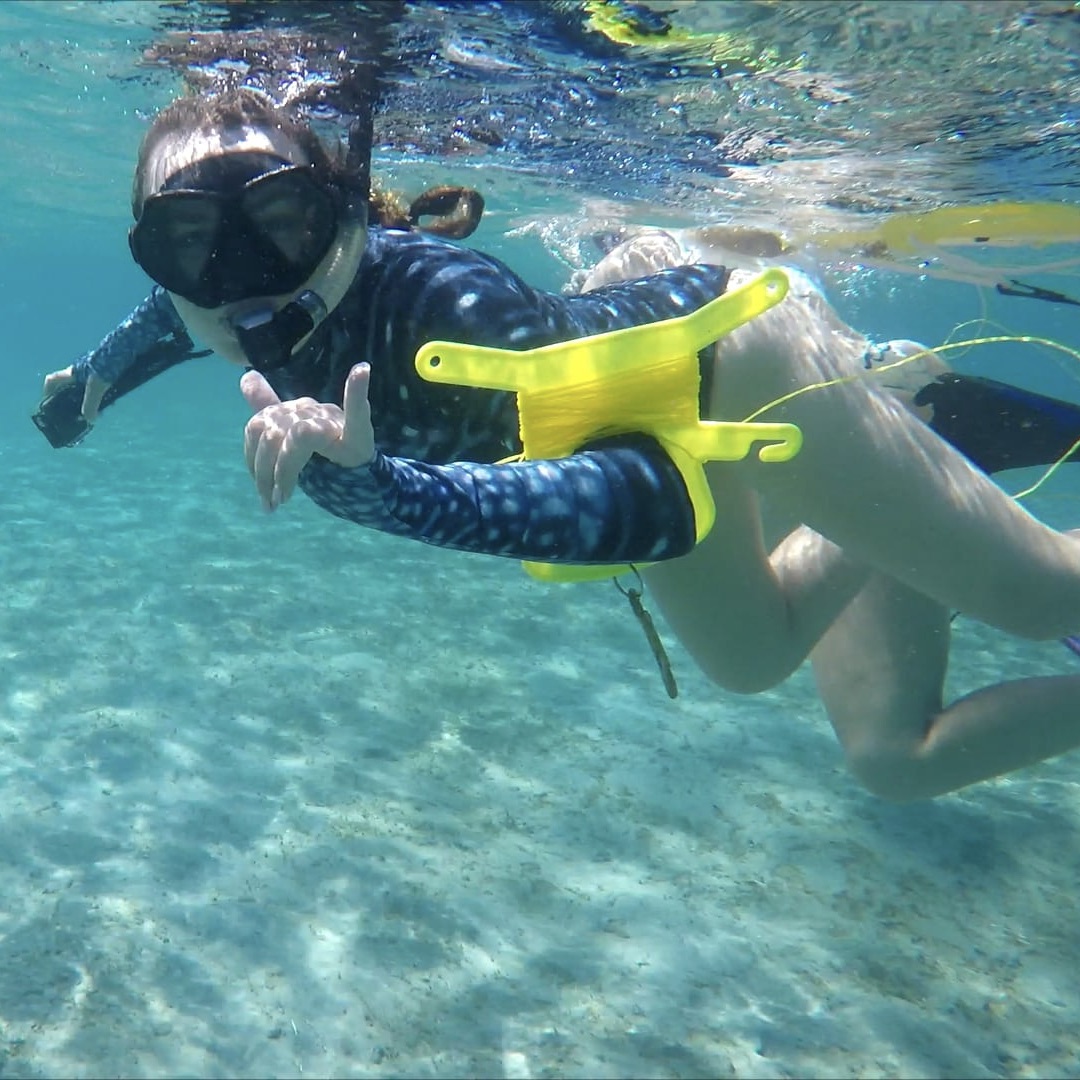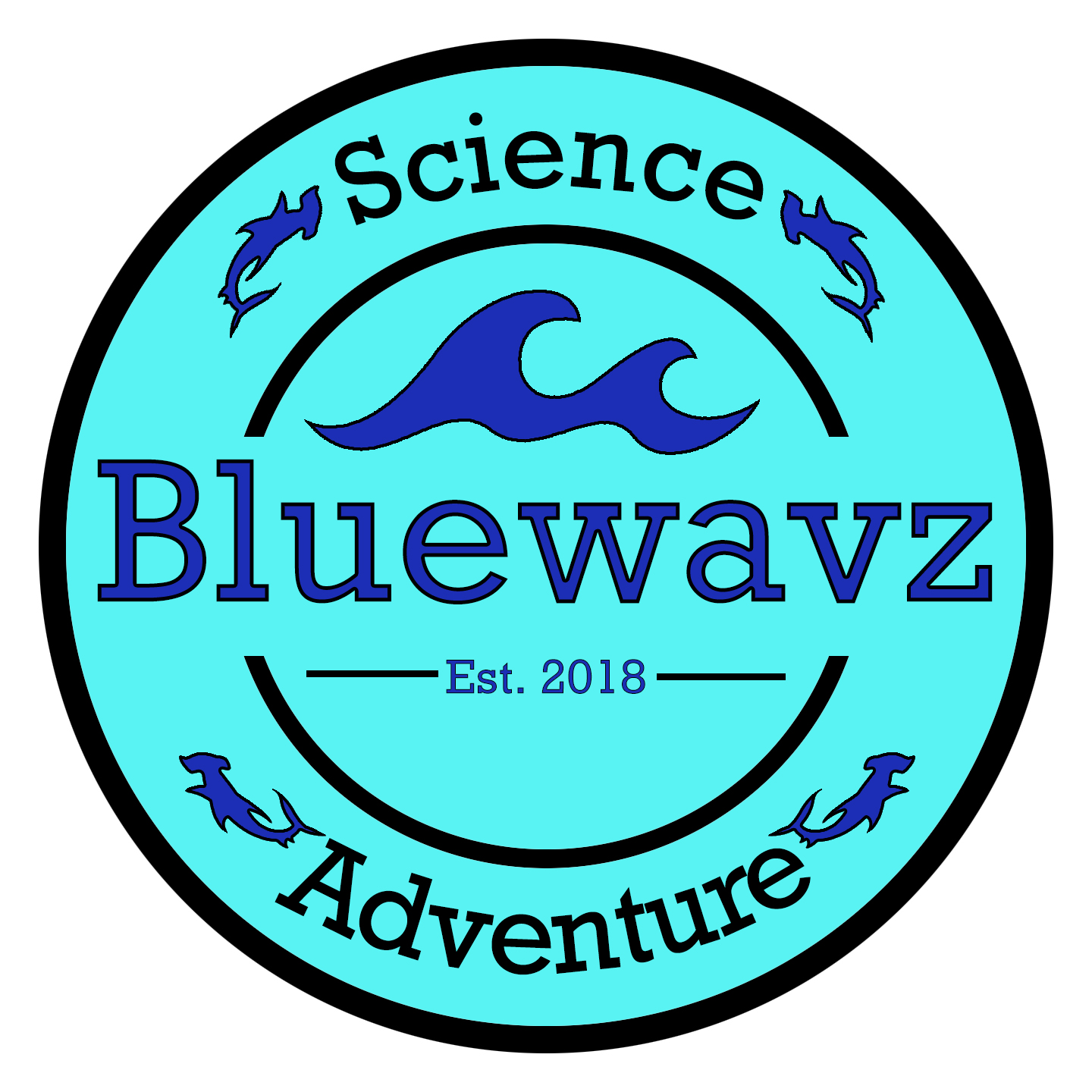
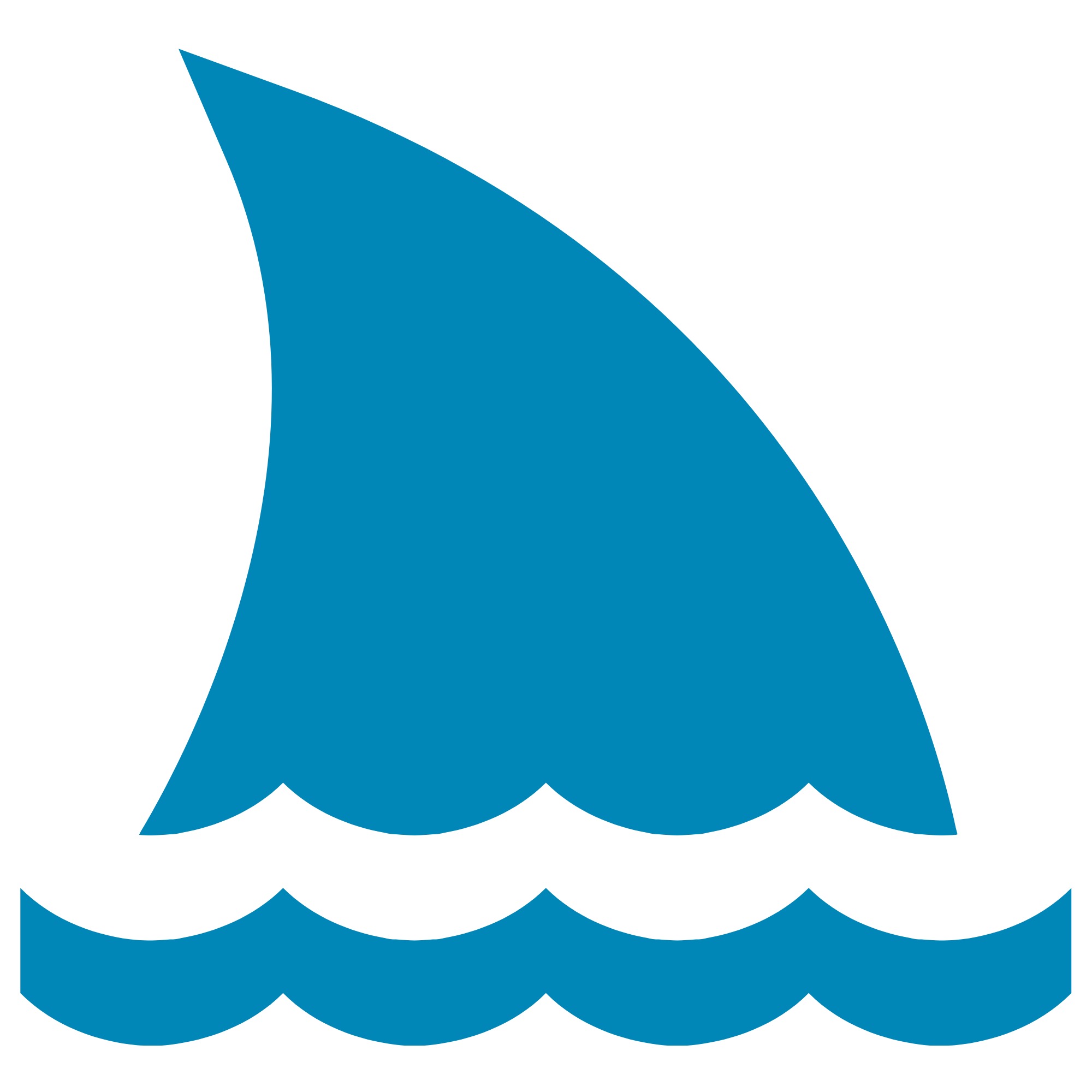


Meet Sara Casareto
I am a Ph.D. candidate in the Marine Community and Behavioral Ecology Lab at Florida International University. My specific research looks at the different factors that may affect the behavior and decision making of juvenile sharks in coastal waters. The specific questions I am interested in involve risk from larger sharks, abiotic factors like salinity and temperature, and the presence/absence of different shark species. By focusing these questions in an area that has experienced lots of human impacts, I can look and see how different conditions affect juvenile sharks of different species.
I am originally from Maryland, however, I have been in Florida since 2016, studying marine species ranging from sharks to photosynthetic sea slugs. In addition to being a researcher, I am also a passionate educator, involved in outreach through National Geographic, The Rookery Bay National Estuarine Research Reserve and social media. To see more, you can see all the work I am up to on my Science Blog on Instagram – @bluewavz.
2019 B.S. Biology-Marine Science, University of Tampa
Get To Know Sara
I grew up in Maryland, in an area equidistant from Baltimore and Washington D.C. However, I am first generation American, with my family living in Italy.
I began scubadiving at the age of 11, with family trips always centered around the ocean. I also volunteered all throughout highschool as an exhibit guide at the National Aquarium in Baltimore. I fell in love with the ocean and all the animals in it, wanting to learn more.
My favorite sea creature is the great hammerhead shark. They are such a cool predator, a shark species that actually specializes on feeding on sharks and rays. They also look so derpy with their “hammer” head!
I am working within the Rookery Bay National Estuarine Research Reserve to explore the juvenile shark population within the estuary. Specifically, I want to see where they are spending their time, and how different factors may influence this. This involves long days out on the water, catching both large and small sharks in different parts of the estuary. I also take blood, fin, DNA, and muscle samples, to see where and what these sharks may be feeding on.
Coastal habitats are being changed at a tremendous rate by sea level rise, coastal development and other human influences, and there is ongoing interest in restoring many such habitats. Knowing how the species in these coastal areas will respond to the variance of factors is important for setting conservation and restoration targets and predicting responses to future natural and anthropogenic change.
During my undergrad, I focused on Biology and Marine Science as my degree. I also got involved in research labs my freshman and sophomore year. This gave me the opportunity to get involved in research early on. I also did research internships over the summer, including at MOTE in the Florida Keys. This gave me the background and knowledge I needed when applying for graduate schools.
My dream job is to become a professor, leading my own research lab, focusing on predator-prey interactions and marine conservation.
There is no typical day! I have some days where I wake up at 5am to get out onto the water, where we catch different shark species. I also have days where I am sitting in front of a computer, writing or analyzing data. I also have days where I go into the lab to process samples, or work closely with interns on their own projects. Every day is unique!
Being able to see that my research and outreach has actually helped people learn something new and grow a love for the marine world cannot be beat. However, to get to that point, there is a lot of hard work and long nights (and days) involved.
It is crucial to share my research because our oceans need our help. I always say, you can’t expect someone to love something they don’t know. My research, along with many others’, helps those outside of the marine world to learn and grow to love and appreciate what marine scientists are doing.
In my free time I like to read, go to the gym and explore the outdoors with my dog, Dexter. I enjoy hiking and camping, as well as snorkeling and SCUBA diving. Whenever I am in the car I am listening to a True Crime podcast.
Put yourself out there. Don’t be afraid to hear no, and be persistent. My first research opportunity came about because I was persistent and did not stop reaching out to a professor. Not asking is a guaranteed no, while when you put yourself out there, you give yourself a chance.
When someone comes up to me and says “OH I wanted to be a marine biologist when I grew up!”. It goes to show that so many people care, and so many people want to learn about the ocean and how to protect it. Knowing I have the ability to help foster that love in more people and help us learn more about sharks and our oceans truly keeps me motivated.
Interview conducted in July 2023

